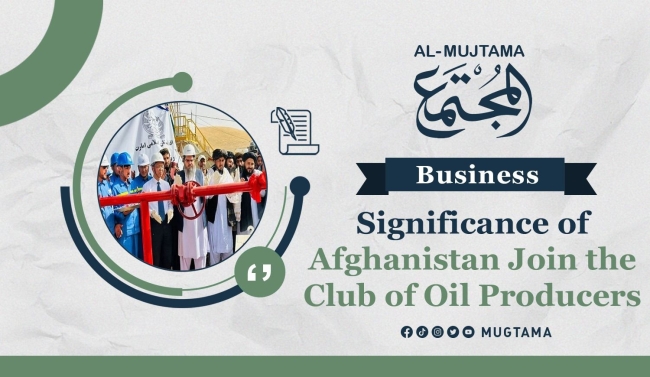Significance of Afghanistan Join the Club of Oil Producers Featured
Afghanistan's Entry into Oil Production
Afghanistan has resumed oil production, with the Ministry of Mines and Petroleum announcing the extraction of crude oil from wells near the Amu River in Sarpol Province. This development is expected to enhance the country's financial resources.
Historical Oil Exploration in Afghanistan
During the 1950s, Afghan and Soviet experts discovered oil and gas deposits in Afghanistan's northern provinces, leading to the establishment of oil production with Soviet support. However, production declined following the Soviet withdrawal in 1989.
Afghanistan's Oil Resources
Afghanistan's oil and gas deposits were primarily discovered by the Soviets in the 1970s. The government began extracting oil from sites like Angot in the Qashgari region. However, ongoing conflicts and instability have hindered full exploitation of these resources.
Key Oil Fields
Significant oil fields are found in northern provinces such as Sarpol, Faryab, Sheberghan, and Herat. The current administration prioritizes oil extraction from northern fields, including the Amu River and Qashgari reservoirs.
Proven Oil and Gas Reserves
Experts believe that northern Afghanistan contains substantial oil and natural gas reserves. Estimated reserves are approximately 1.5 billion barrels of oil and 15.6 trillion cubic feet of gas. However, these figures may vary due to past inconsistencies in reporting.
Current and Future Oil Production
Afghanistan produces about 1,000 barrels of oil per day. This is expected to rise to over 15,000 barrels daily through the development of additional wells. However, Afghanistan's domestic consumption stands at 35,000 barrels per day, necessitating reliance on imports for meeting its energy needs.
Chinese Companies in Afghanistan
Chinese firms have secured major oil and mining contracts in Afghanistan. They have signed contracts worth millions of dollars with the Afghan government. However, there have been concerns about their investment goals and delays in project implementation.
Concerns and Challenges
However, issues have arisen regarding the goals of Chinese investments and delays in project execution. One significant challenge for Afghanistan's oil industry is the scarcity of local expertise and international sanctions imposed on its banks. These factors make it difficult to attract foreign investment, along with the uncertain status of the Afghan government's international recognition.
Anyway, Afghanistan's oil production may not immediately improve the lives of its citizens, as it will take time for any significant changes to be felt. The process of expanding production is expected to be gradual, and its benefits might not be immediate.


